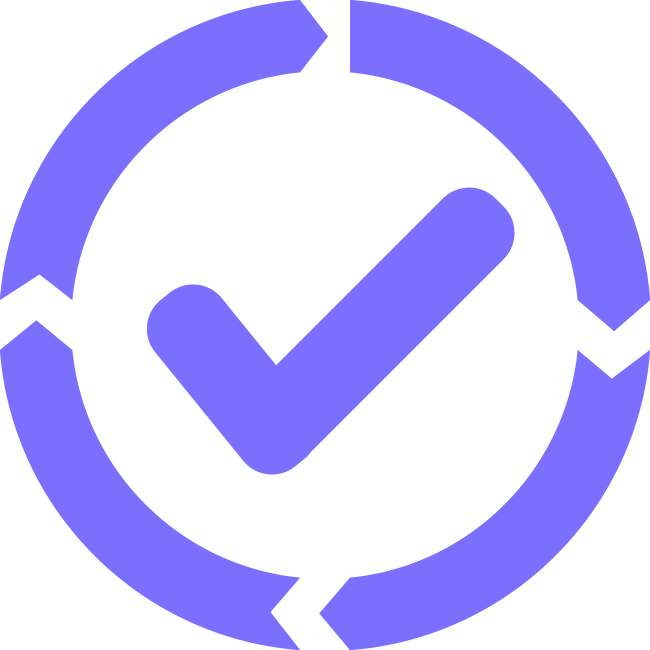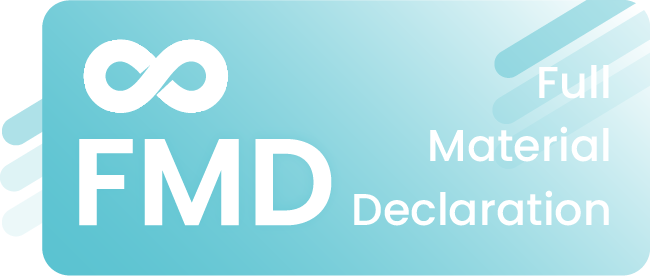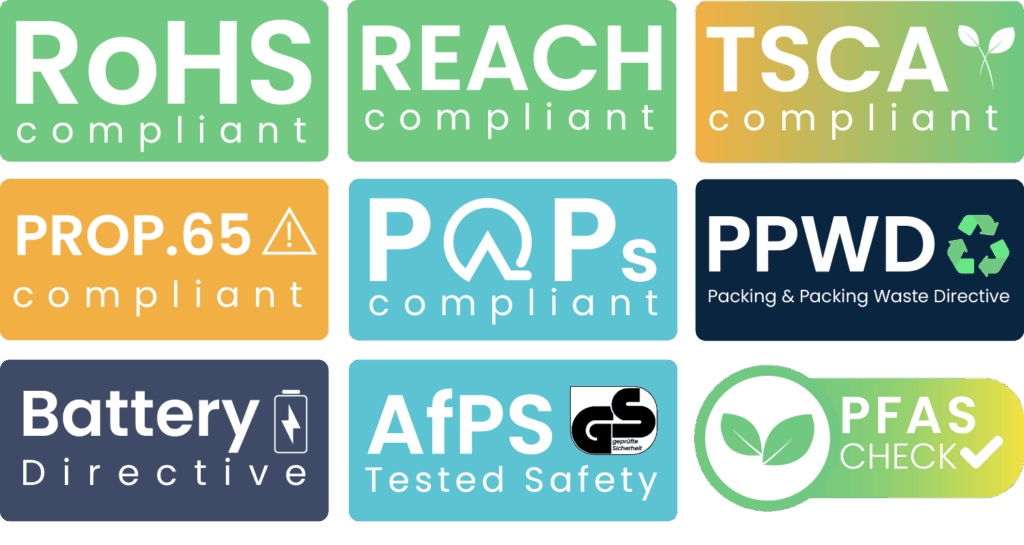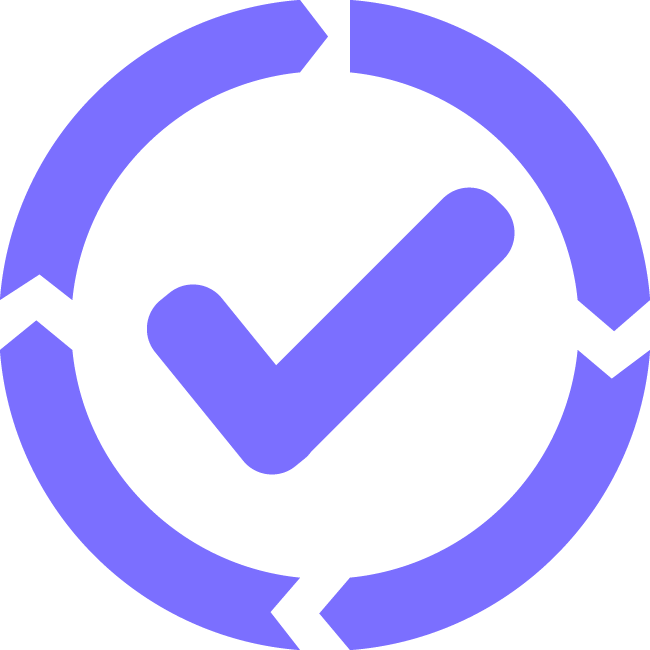Sustainability Management Software for Your Environmental Reporting
Sustainability reporting without reliable material data? Impossible. Substantio provides you with the transparent data foundation you need for CSRD reports, life cycle assessments, and the Digital Product Passport.
Take full advantage of our intuitive platform:
Manage environmental compliance and achieve sustainability goals
Comply with EU regulations, e.g. the Digital Product Passport
Data assessment according to ISO 14040/44 and EN 15804+A2
Establish a foundation for ESG and environmental reports
Demonstrate transparent environmental data across the supply chain
Identify improvement opportunities early to make sustainable decisions during the development process
Clarify Your Environmental Compliance! With Transparent Material Data

"We aim to simplify the complex process of sustainability assessment, making it reproducible and scalable with our solution. To achieve this, the necessary data and processes are firmly integrated into product development. Once material, bill of materials, and process data are stored, mass calculations for your portfolio can be performed, providing a solid foundation for life cycle assessment calculations. This gives companies, for the first time, a tool to systematically capture their entire portfolio in terms of sustainability and to standardize this information for communication with customers“
Stephan Lamperski, CEO at Substantio GmbH
Authentic Sustainability Claims through Compliant Product Data
The quality of a claim depends on the quality of the underlying data. We enable our customers to easily capture, evaluate, and aggregate valid data from the supply chain. This is the only way you can make informed and authentic statements about your footprint.
Our strength lies in reducing complexity in the data jungle:
- Automate the collection of data from the supply chain as much as possible
- Real-time information: Evaluate data at a glance, automatically aggregate, and make current statements
- Automated calculations across the entire bill of materials
- Substantio offers an integrative approach and communicates directly with your PLM or ERP system.
- Calculation of emission values based on your development or production bill of materials.
- We capture the entire ecological footprint, not just the CO2 equivalent.
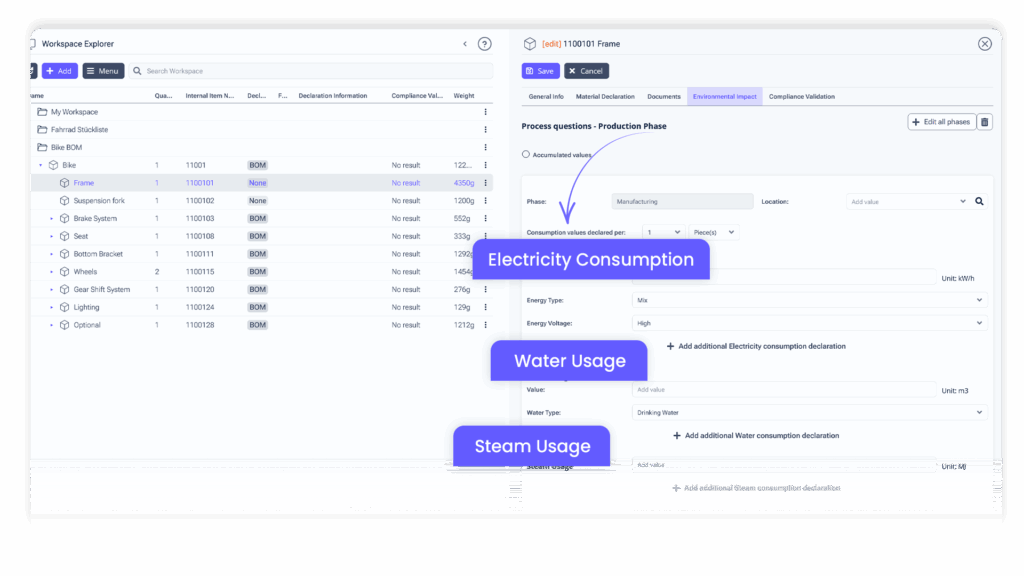
Our future lies in sustainability – we make it measurable and transparent
The development, manufacturing, and sale of products will no longer be possible without considering their environmental impact. As part of the European Green Deal, we are working together toward the EU’s climate neutrality goal by 2050. One of the measures against greenwashing and for more transparent environmental claims is the Digital Product Passport.
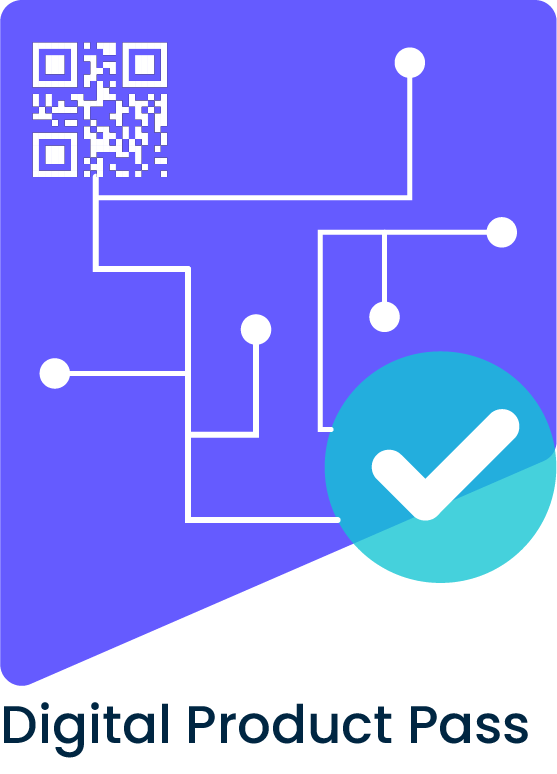
Sustainability and Compliance Proof for Every Product: The Digital Product Passport
With the implementation of the Sustainable Products Act in mid-2024, the requirements for manufacturers to disclose extensive information about the components, substances, and recyclability of their products will increase.
The Digital Product Passport (DPP) is expected to become mandatory for all manufacturing companies across various industries by mid-2027.
Prepare for the Digital Product Passport now:
Create transparency in your material compliance
Measurable Sustainability Outcomes Based on Transparent Data
With Substantio, there are several ways to obtain transparent data for measuring emissions values:
- Request of material and sustainability data within the supply chain.
- Calculation of emission values based on existing LCA analyses.
- If no actual values are available, Substantio can rely on provided certified data or integrate existing customer datasets.
What is particularly important to us: In Substantio, you can see the qualitative significance of your Product Environmental Footprint based on a scoring system.
Lay the Foundation for LCAs, ESG Reporting, and Environmental Audits
Sustainability reporting is mandatory! Companies must create transparent and credible reports that present their environmental impacts, social engagements, and governance practices (ESG). In Europe, regulations like the CSRD (Corporate Sustainability Reporting Directive) govern this, making it mandatory for larger companies. With transparent information across the entire product lifecycle, you create the foundation for successful audits.
Substantio Tool for Capturing Scope 3 Emissions
Under the Greenhouse Gas Protocol (GHG Protocol), companies are required to measure, assess, and document their emissions. Substantio assists in collecting, analyzing, and transparently maintaining emission values. This includes:
- Scope 1 Emissions: Emissions from direct sources, such as production or the company’s vehicle fleet.
- Scope 2 Emissions: Emissions from the consumption of purchased electricity, heat, or cooling.
- Scope 3 Emissions:
Emissions occurring across the entire value chain, which the company does not directly control. This includes emissions from the production of materials, transportation, impacts during the usage phase, and ultimately, disposal.
Scope 3 emissions make up the largest share of the carbon footprint in the manufacturing industry and are therefore an increasingly important lever to reduce the greenhouse gas balance.
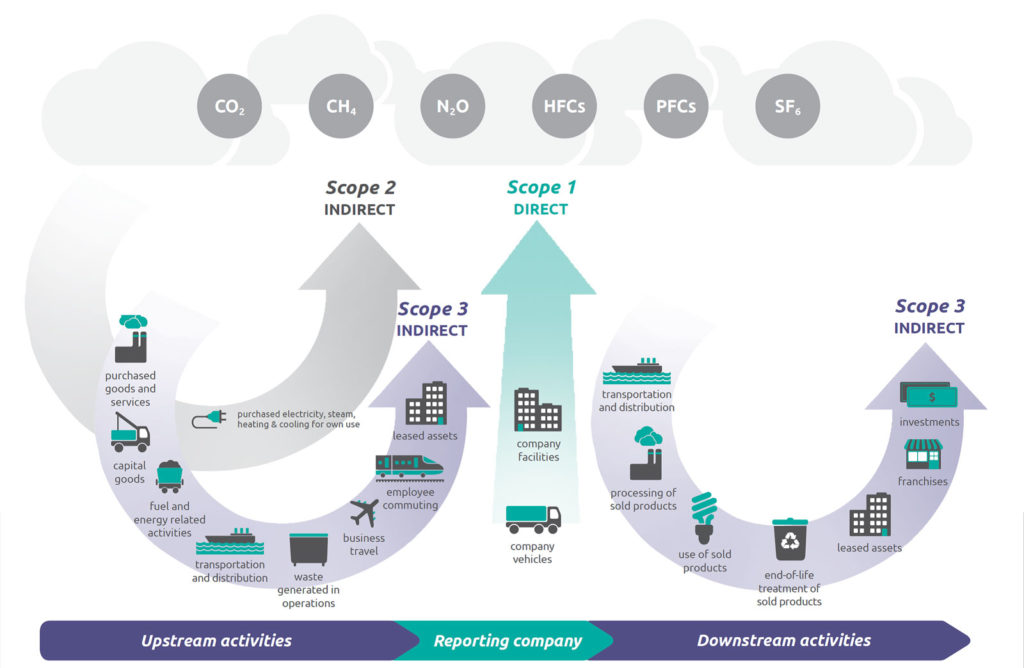
With our software, you can capture Scope 3 emission values from the supply chain to disposal and directly use them for your environmental reporting, LCA, and ESG reports. This transparency creates meaningful opportunities for implementing measures to reduce emissions.
Direct Integration of Substantio with the Leading PLM System Siemens Teamcenter
Ideally, material information is available exactly where it’s needed. Substantio data can be seamlessly integrated into your Teamcenter or PLM solution and connected to all relevant programs via an interface.
The advantage: Engineers can directly assess the emissions value of each substance and decide if an alternative material has lower emissions.
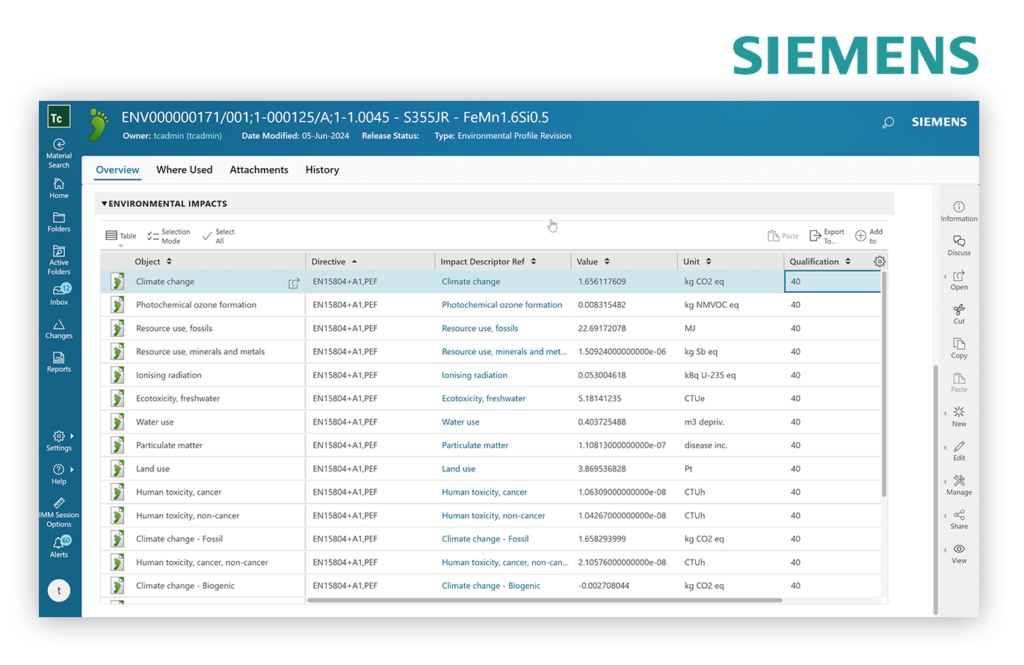
Your Benefits with Substantio for Your Sustainability Management
Substantio is the foundation for your product compliance. Secure market access for the future with compliant product data.
Quickly and easily identify which component has the greatest environmental impact. Substantio provides insights into environmental impacts across different lifecycle phases.
Substantio allows you to compare your products using environmental KPIs. This gives you a clear overview for minimizing environmental impacts and making informed decisions.
Companies must ensure that their suppliers also comply with environmental and social standards. With Substantio, you can retrieve manufacturer-specific environmental data from your suppliers for your compliance calculations and analyses. Over time, you will build a transparent supply chain.
Substantio enables you to create and provide product declarations to your customers. You can communicate relevant environmental data and sustainability information to build trust with your customers and meet their requirements.
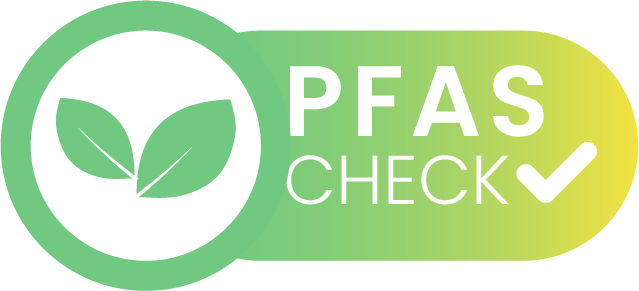
PFAS Reporting Requirement in the USA
PFAS (Per- and Polyfluoroalkyl Substances) are persistent, health-hazardous chemicals that break down very slowly in the environment. They are found in numerous products, such as water- and stain-resistant textiles, packaging, cosmetics, and many others – and should be urgently avoided.
In the USA, starting July 11, 2025, there will be a PFAS reporting requirement under the Toxic Substances Control Act (TSCA) to better monitor the spread and use of these chemicals. Check your bills of materials for PFAS! With Substantio, you gain insights.
Do you want to integrate sustainability into your product development? Do you need reliable emissions data to calculate your CO 2 footprint?
FAQ's

How is Sustainability Measured? With Transparent Substance Data
On one hand, through access to transparent substance data. On the other hand, through measurable sustainability goals that cover environmental, social, and economic aspects. For example, reducing the carbon footprint, promoting a circular economy, or supporting social justice.
Can Sustainability Reports Be Automated?
When data on materials, processes, and supplier parts is available in the product bill of materials, the creation of sustainability reports can be automated with Substantio.
Once integrated, transparent data enables scalable and repeatable reporting.
How Can So-called Greenwashing Be Avoided?
To avoid being labeled as “greenwashing,” companies must ensure that their sustainability claims and actions are authentic, transparent, and verifiable. Greenwashing refers to the attempt to appear more sustainable or environmentally friendly than is actually the case, which can lead to significant reputational damage.
What Are the Key Aspects of Sustainability Management?
For companies, it is essential to develop a comprehensive strategy to meet their sustainability compliance in order to secure market access, competitive advantages, and customer trust. This includes:
- Compliance with Legal Regulations: Environmental laws under the EU Taxonomy and Corporate Sustainability Reporting Directive (CSRD) on topics such as emissions, waste management, energy consumption, water usage, and chemical use.
- Compliance Regulations: Such as REACH, RoHS, TSCA, PFAS, CSRD, and many others.
- Setting and achieving long-term sustainability goals to reduce negative impacts on the environment and climate.
- Sustainability Reporting and Certifications: Establish the data foundation for meaningful LCAs and ESGs to be audited under established environmental standards, such as ISO 14001 (Environmental Management), EMAS (EU Eco-Management and Audit Scheme), or the UN Global Compact.
- Circular Economy and Resource Efficiency: Many companies are now developing and producing with the 5 Rs in mind: Reduce, Reuse, Recycle, Recover, Repair. This means using fewer resources, ensuring reusability and recyclability, and reducing waste.

